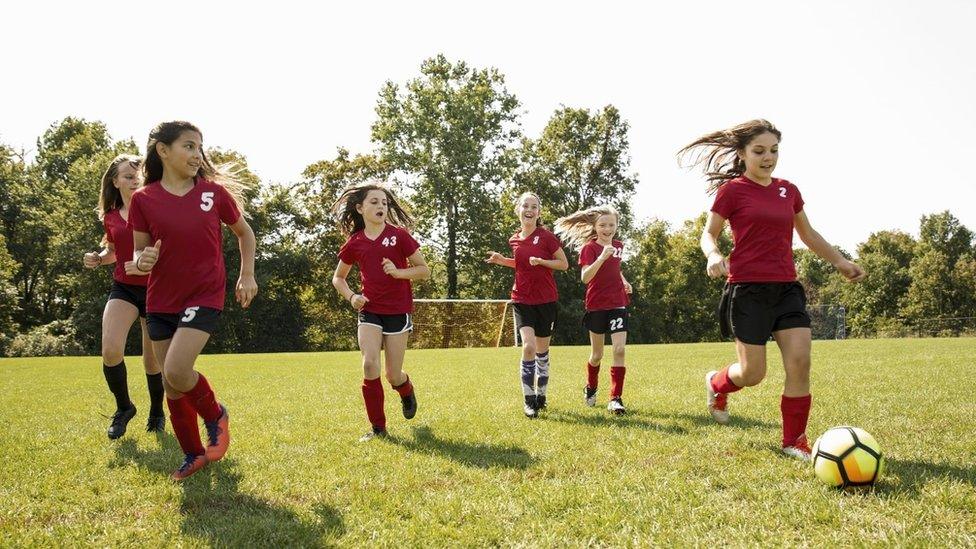Boris Johnson, Angela Merkel and Emmanuel Macron call for pandemic treaty
- Published
- comments
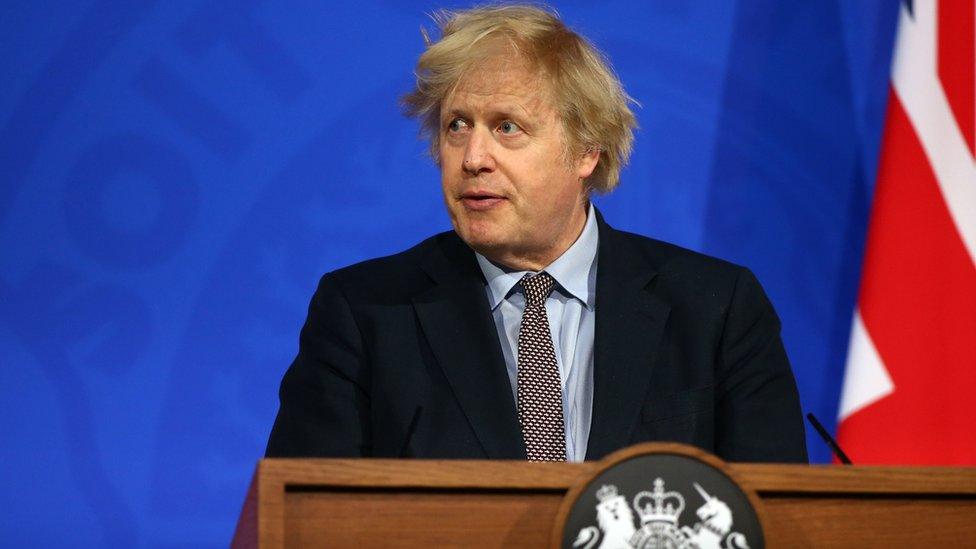
More than 20 world leaders have called for an international treaty to better 'prepare' and 'protect' countries against future pandemics.
In an article written for newspapers around the world, leaders including UK Prime Minister Boris Johnson, German chancellor Angela Merkel and President Macron of France say Covid has posed the biggest challenge for the world since World War Two.
They say the pandemic has shown that "nobody is safe until everyone is safe". Meaning that only by helping other countries, will the world be safe against Covid or any other pandemic.
The leaders add that an agreement between nations will mean the world is "better prepared to predict, prevent, detect, assess and effectively respond" if there is a pandemic in the future.
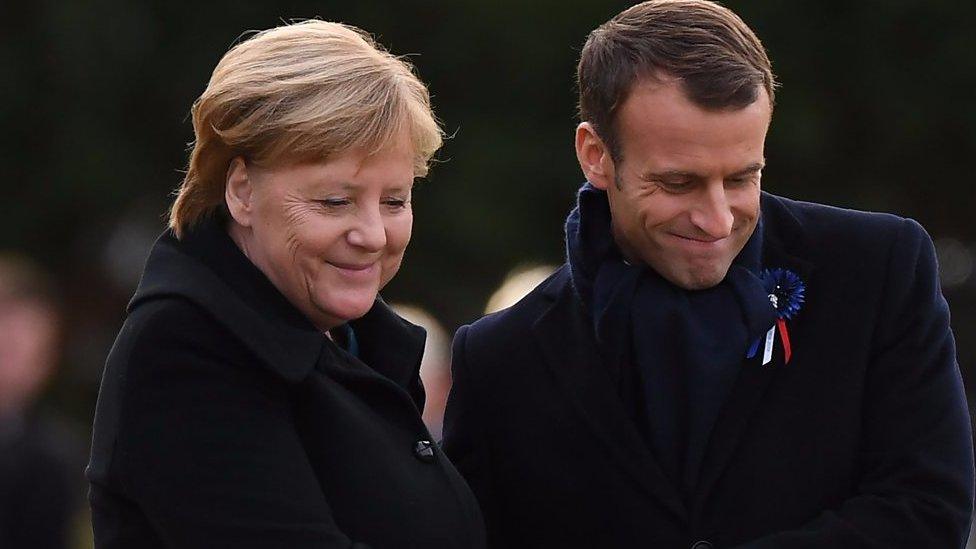
German chancellor Angela Merkel and President Macron of France have joined UK Prime Minister Boris Johnson in calling for an international treaty to deal with pandemics
Why is coronavirus compared to World War Two?
Coronavirus is a huge moment in history, from the hard work of health workers and vaccine scientists, to the enormous cost for governments and sadly, the lives that have been lost. For those reasons politicians often compare it to the Second World War.
World leaders say the treaty, or signed agreement between countries will be similar to one agreed after World War Two and that it's needed to build cross-border cooperation.
In 1945, after the Second World War had ended, the United Nations (UN) was established. It was and still is an agreement between countries with the aim of preventing future wars.
Head of the World Health Organization (WHO), Dr Tedros Adhanom Ghebreyesus, says: "At that time, following the devastation of two world wars, political leaders came together - to address the challenges that could only be achieved together in the spirit of solidarity and co-operation - namely peace, prosperity, health and security."
Vaccine argument
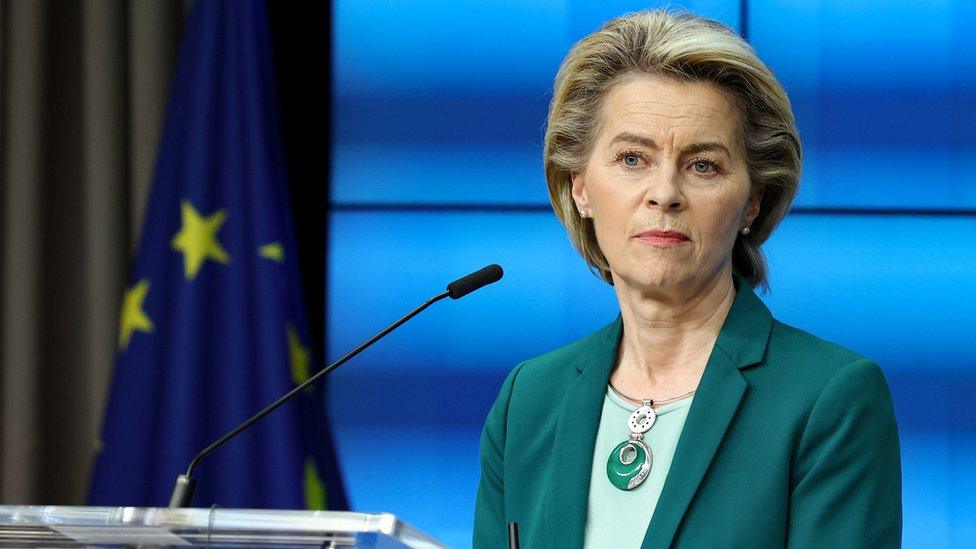
European Commission President Ursula von der Leyen urged AstraZeneca to "honour its contract"
The letter by world leaders published in the UK's Daily Telegraph newspaper and in publications around the world says: "At a time when Covid-19 has exploited our weaknesses and divisions, we must seize this opportunity and come together as a global community for peaceful co-operation that extends beyond this crisis."
But the timing of the newspaper article from world leaders comes as the UK and EU continue to disagree about the delivery of vaccines.
The European Union is unhappy because it says deliveries of the AstraZeneca vaccine developed in the UK have not been sent as promised.
AstraZeneca has denied that it is failing to keep its delivery promises.
Now the EU has added tougher controls and restrictions on the vaccines made in Europe that are being sent to the UK.
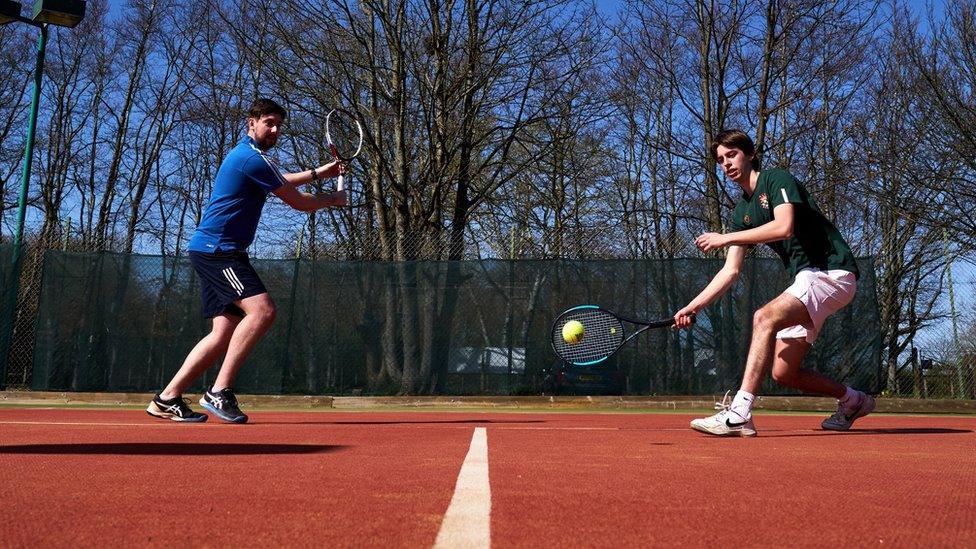
Outdoor sports like tennis were allowed again from Monday 29 March in England
Despite arguments over vaccines, the Prime Minister Boris Johnson says the UK's planned road map out of lockdown should continue as hoped.
Speaking as the stay-at-home rule came to an end in England, allowing groups to meet outdoors, the PM said he could not "see anything in the data right now that would cause us to deviate from the road map" of easing further restrictions.
If all goes to plan, from 12 April, shops, hairdressers, gyms and outdoor hospitality will reopen in England, with lockdown rules lifted completely on 21 June.
- Published6 April 2022
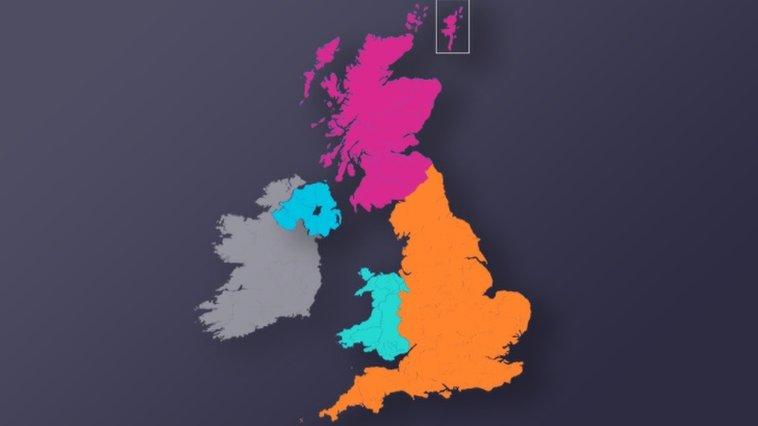
- Published29 March 2021
